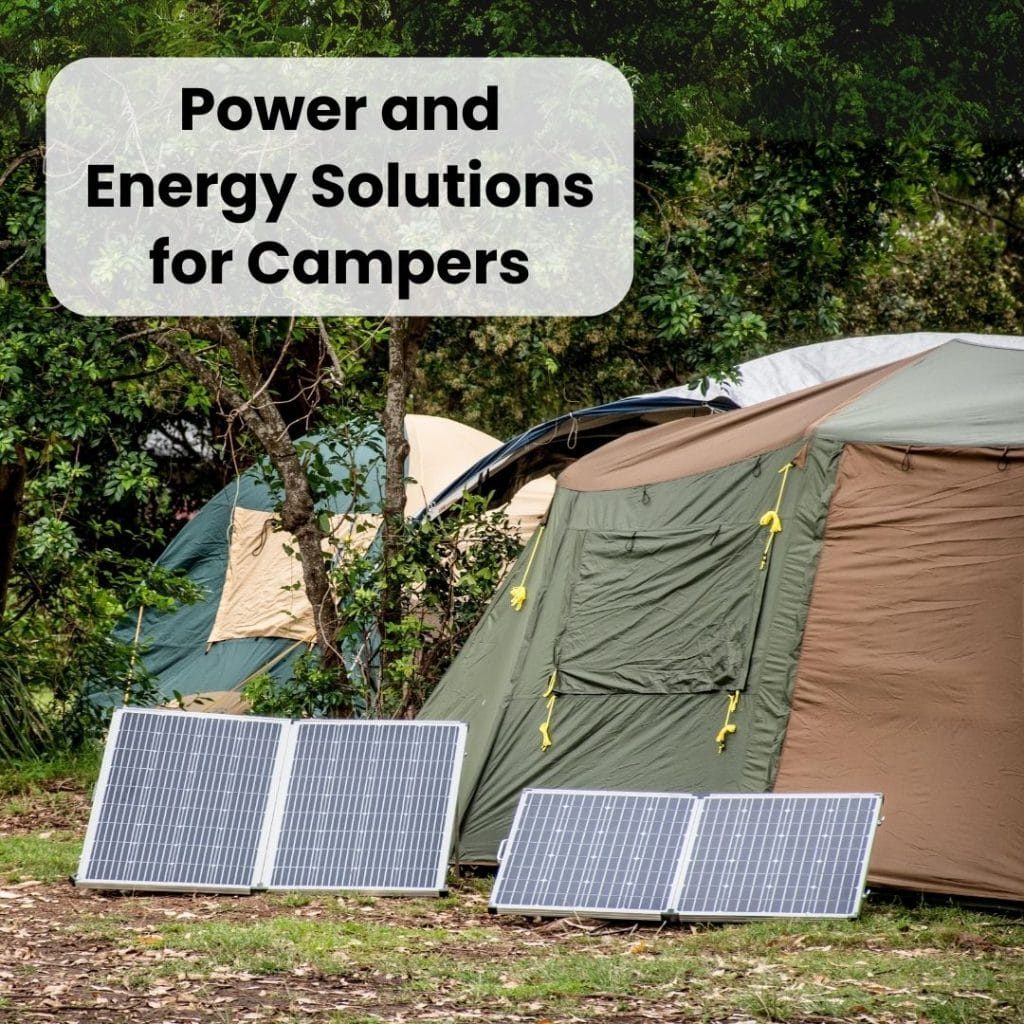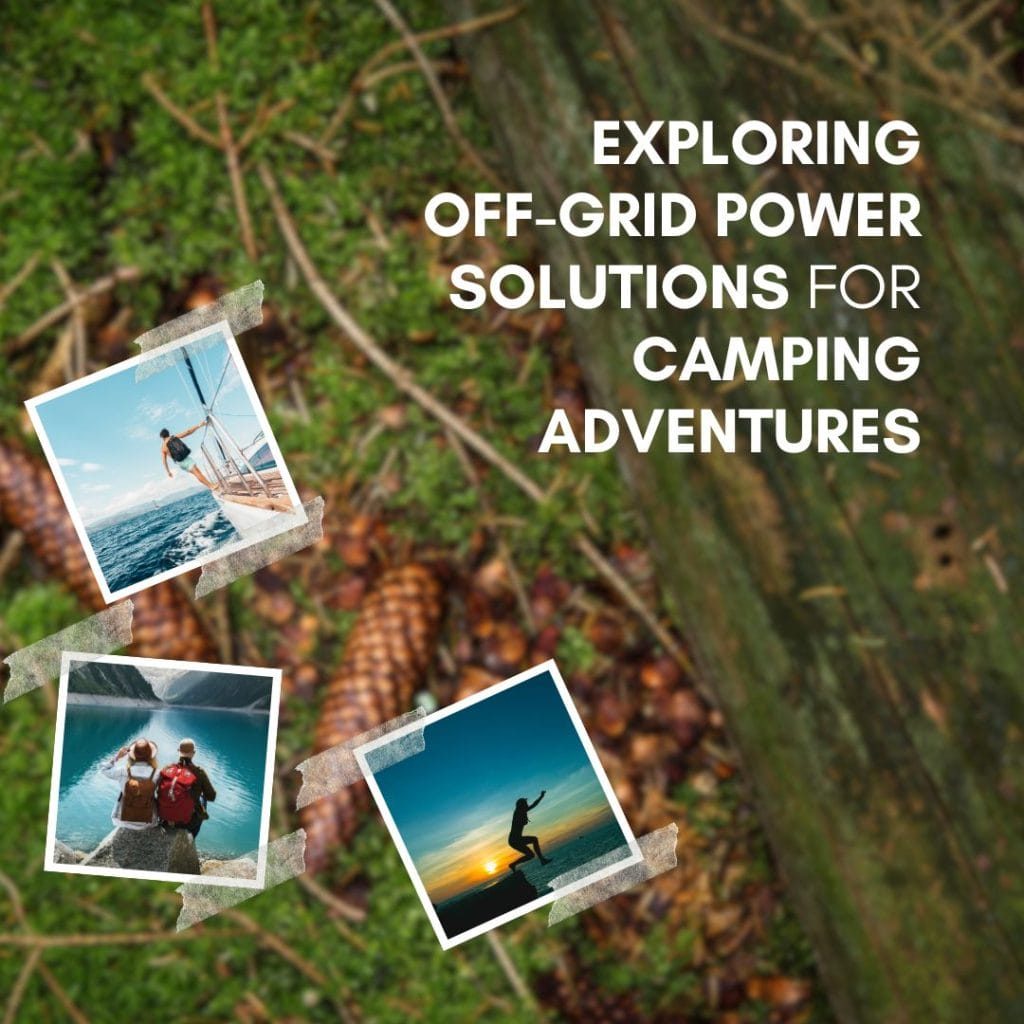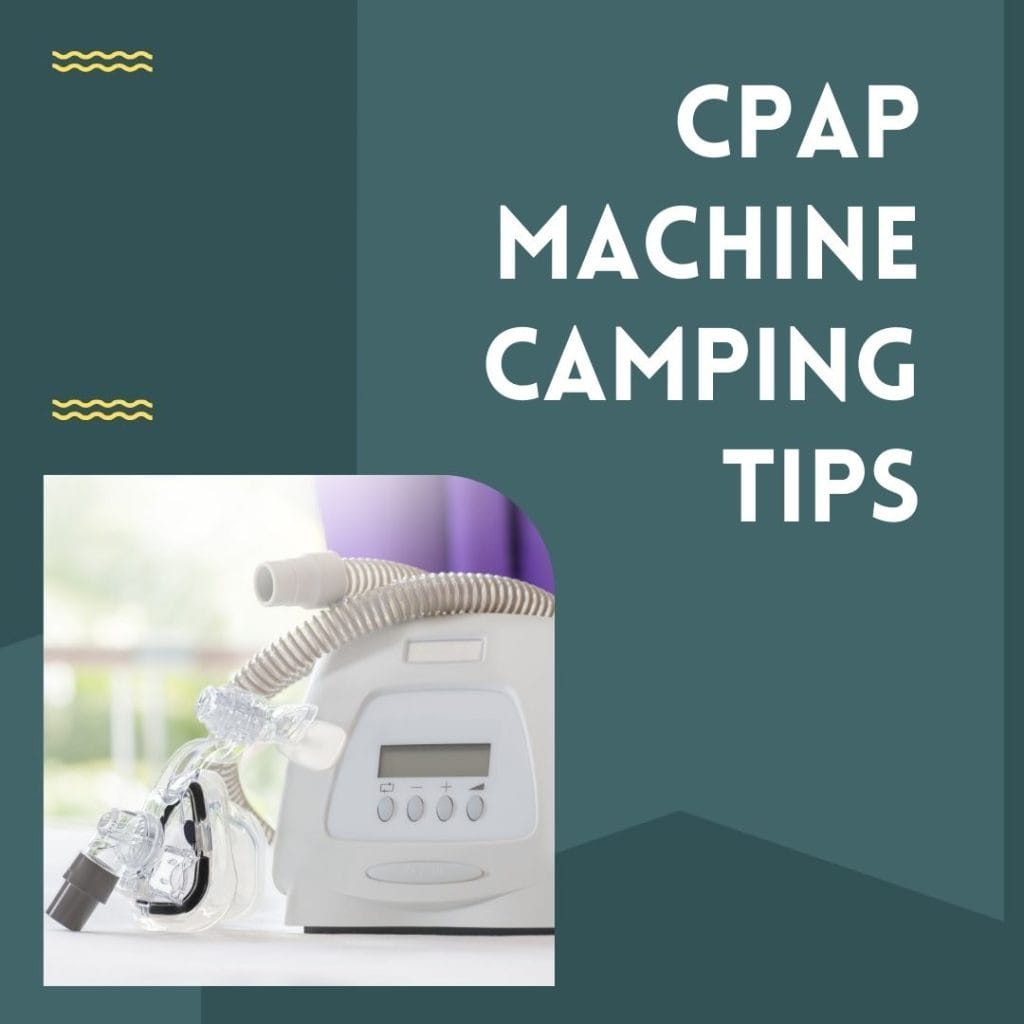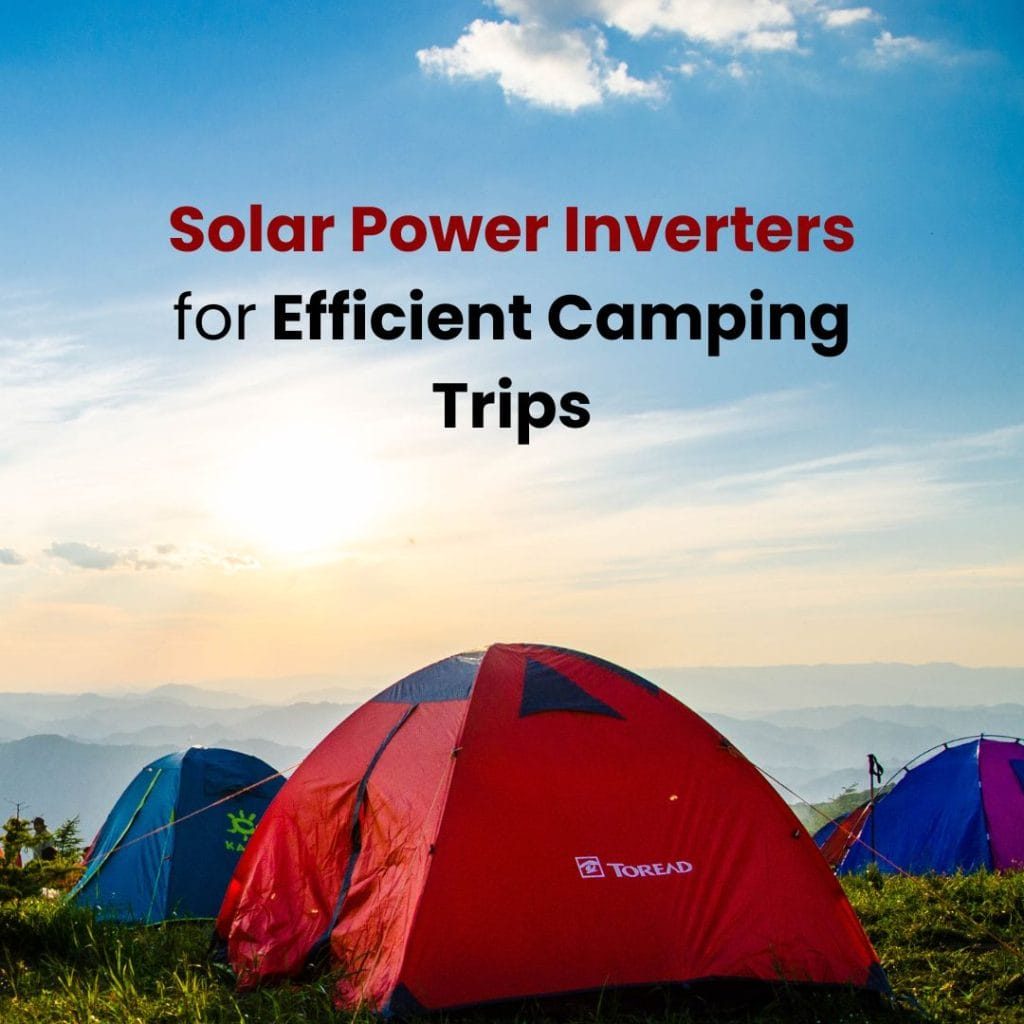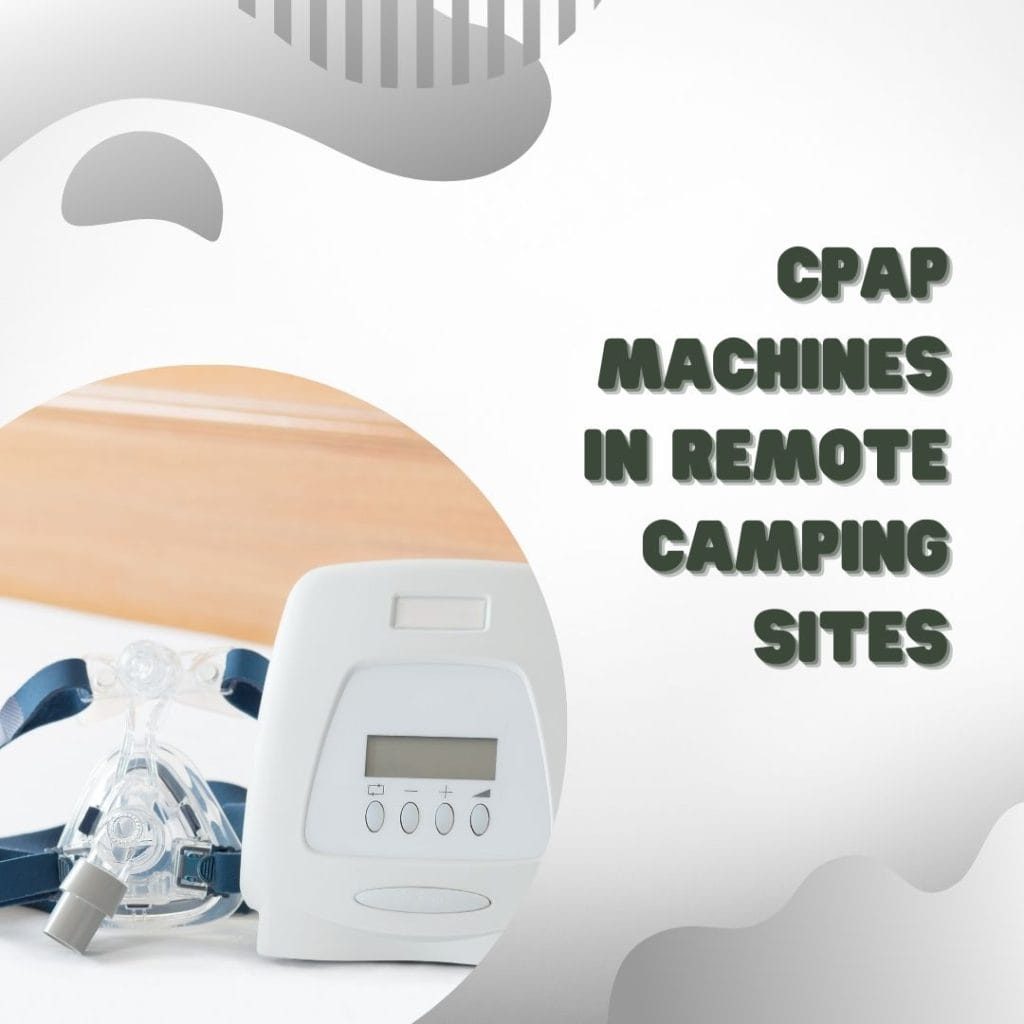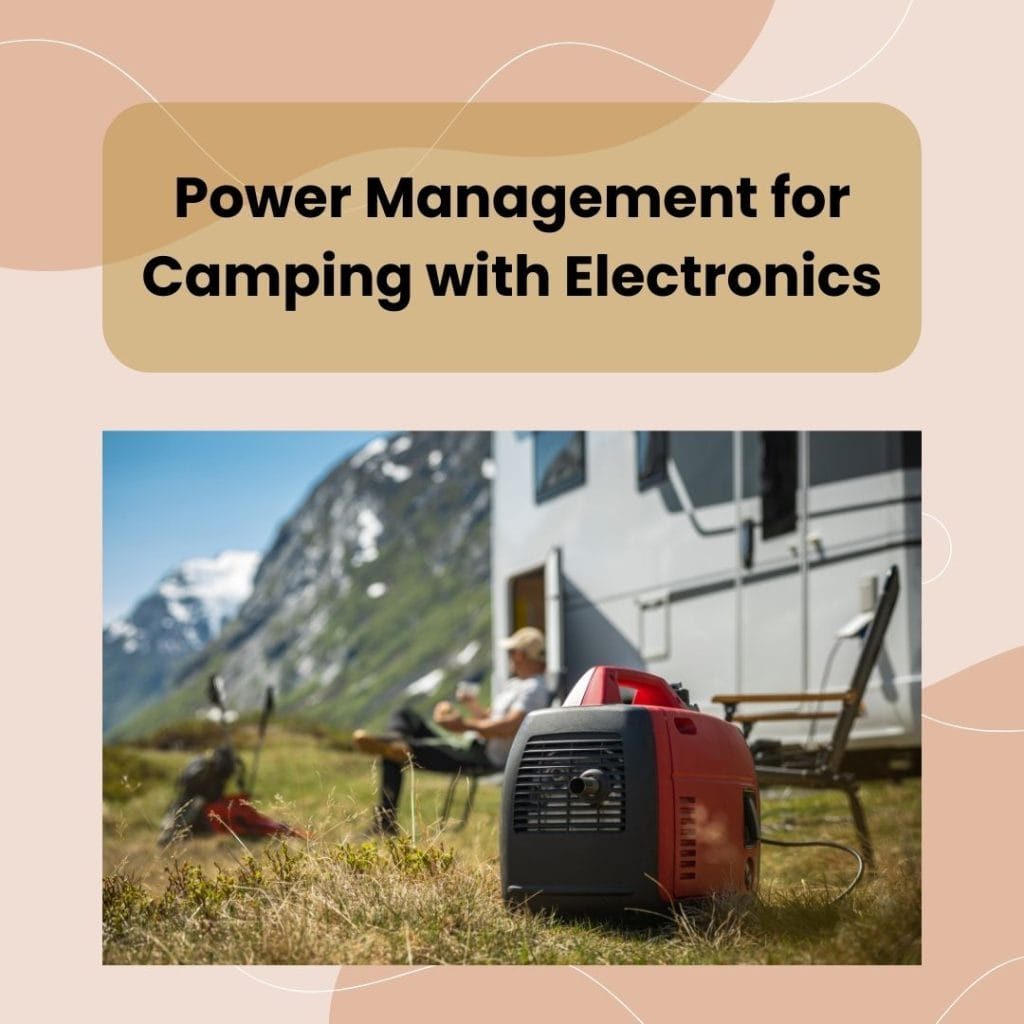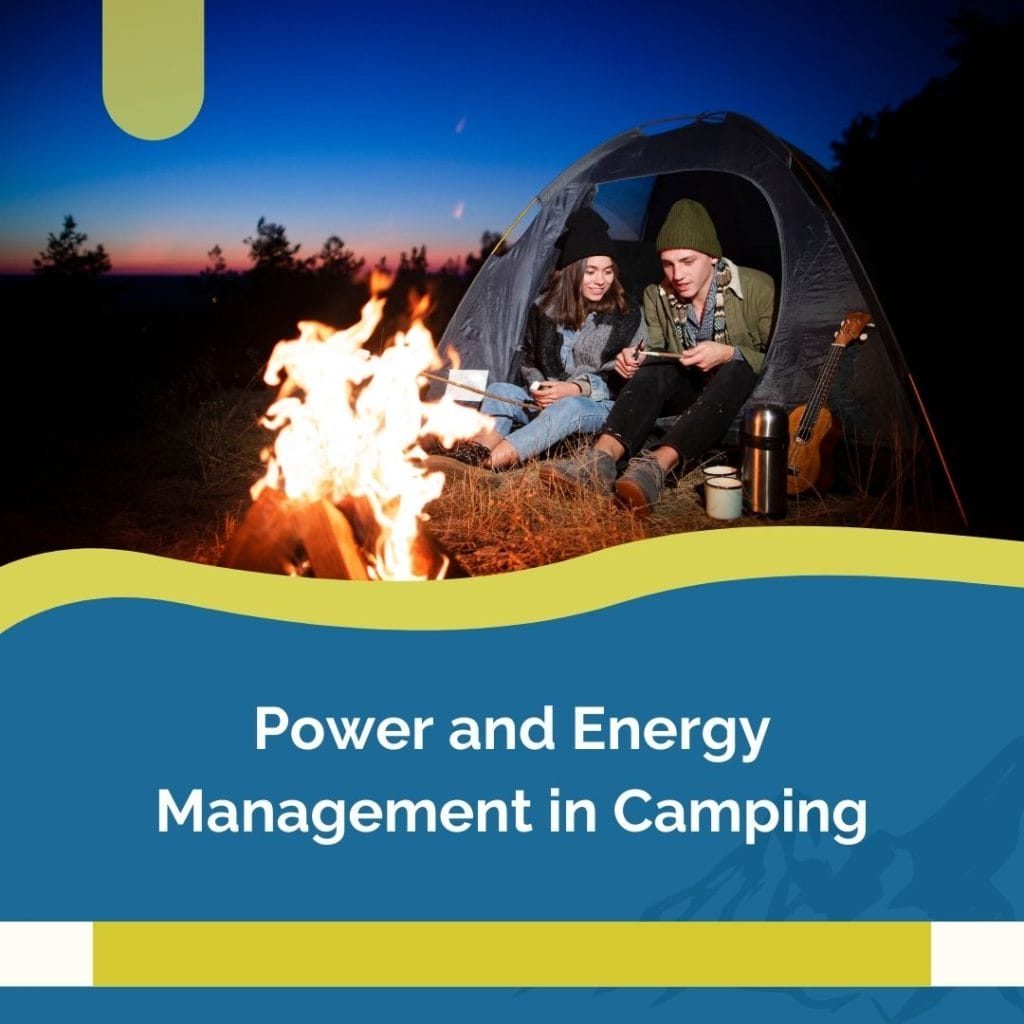Welcome to “The Essential Guide to Power and Energy Management in Camping,” your comprehensive resource for managing your energy needs effectively while embracing the great outdoors. Whether you’re a seasoned camper or embarking on your first outdoor adventure, understanding how to manage power and energy is crucial for a smooth, enjoyable experience. This guide aims to provide you with all the information you need to make informed decisions about your power sources, from quiet generators to solar power solutions, ensuring your camping trip is as comfortable and sustainable as possible.
Whether you’re lighting up a remote campsite, powering a small appliance, or ensuring your medical devices stay operational in the wild, this guide has you covered. Let’s embark on this journey to smarter, more efficient power and energy management in camping, and transform the way you experience the great outdoors.
Understanding Your Power Needs: Assessing Your Energy Requirements for Camping
Camping is a great way to disconnect from the hustle and bustle of daily life and reconnect with nature. However, even the most rustic camping experience often requires some form of power. Whether it’s for lighting, cooking, or keeping devices charged, understanding and assessing your energy requirements is crucial for a successful and enjoyable camping trip. This article will guide you through the process of determining your power needs and introduce you to the various types of power sources available for camping.
Assessing Your Energy Requirements
Before you can decide on the best power source for your trip, you need to assess your energy needs. Consider the following:
- Duration of Your Trip: Longer trips will require more power, especially if you won’t have access to recharge your devices.
- Devices and Appliances: List everything you’ll need to power. This includes mobile phones, GPS devices, lighting, cooking appliances, and any medical equipment like CPAP machines.
- Power Consumption: Check the power consumption of each device, usually measured in watts or amp-hours. This will help you estimate the total power needed per day.
- Number of Users: More people means more devices, which in turn increases the overall power requirement.
Types of Power Sources Available for Camping
- Generators: Ideal for powering multiple devices or high-powered appliances. They are available in various sizes, from portable to larger, more stationary models. However, generators can be noisy and are not allowed in all camping areas.
- Solar Chargers and Solar Panels: Eco-friendly and silent, solar options are excellent for charging small devices like phones, cameras, and GPS units. They are dependent on sunlight, so efficiency varies based on weather and location.
- Power Banks: Compact and portable, power banks are perfect for charging phones, tablets, and other small electronics. Their capacity varies, so choose one that suits your needs.
- Battery Packs: Larger than power banks, battery packs can power more significant devices and last longer. They are ideal for powering lights and small appliances.
- RV Batteries: For those camping in an RV, your vehicle’s battery can be a primary power source, supplemented by generators or solar panels.
- Fuel Cells: Emerging technology in camping, fuel cells generate electricity through a chemical reaction, usually using hydrogen. They are quiet and efficient but can be expensive.
- Hand-Crank Chargers: These are manual chargers that require physical effort to generate power. They are useful as emergency backup options.
Generators for Camping: Finding the Right Power Source for Your Outdoor Adventures
When it comes to camping, having a reliable source of power can significantly enhance your experience. Generators, in their various forms, have become a popular choice for campers seeking a balance between comfort and the great outdoors. This article provides an overview of quiet generators, small generators, and general-use generators for camping, along with key considerations to keep in mind when choosing the right one for your needs.
Quiet Generators for Camping
Quiet generators are designed to operate with minimal noise, making them ideal for camping environments where peace and tranquility are valued.
Features:
- Low Decibel Levels: These generators typically operate at lower decibels, ensuring they don’t disrupt the natural ambiance.
- Inverter Technology: Many quiet generators use inverter technology, which not only reduces noise but also provides clean, stable power suitable for sensitive electronics.
Benefits:
- Ideal for campsites with noise restrictions.
- Less disruptive to wildlife and fellow campers.
Small Generators for Camping
Small generators are compact and portable, designed for ease of transport and convenience.
Features:
- Lightweight Design: Their smaller size makes them easy to carry and set up.
- Fuel Efficiency: These generators often run on gasoline or propane, offering reasonable fuel efficiency.
Benefits:
- Perfect for powering small appliances and charging devices.
- Suitable for campers who need a portable power solution without the bulk.
General-Use Generators for Camping
General-use generators are versatile and can cater to a broader range of power needs.
Features:
- Higher Power Output: These generators can handle more significant power loads, making them suitable for RVs or larger campsites.
- Various Fuel Options: They can run on gasoline, diesel, or propane, providing flexibility in fuel choice.
Benefits:
- Ideal for powering multiple devices and appliances.
- Suitable for longer camping trips where more power is necessary.
Key Considerations When Choosing a Generator
- Power Output: Consider the wattage requirements of your appliances and devices. Ensure the generator can handle the total load.
- Fuel Type and Efficiency: Decide between gasoline, diesel, or propane based on availability and personal preference. Consider fuel efficiency and running costs.
- Noise Level: For quiet campsites, a low decibel level is crucial. Check the noise rating of the generator.
- Portability: If you move campsites frequently or have limited space, a lightweight and compact generator is ideal.
- Environmental Impact: Look for generators with low emissions to minimize your environmental footprint.
- Price and Warranty: Balance your budget with the quality and warranty offered by the manufacturer.
- Additional Features: Features like multiple outlets, USB ports, and easy-start mechanisms can add convenience.
Portable Power Banks: Essential Gear for Modern Camping
In an era where technology is integral to our daily lives, keeping devices charged while enjoying the great outdoors has become a necessity for many campers. Portable power banks have emerged as a popular solution, offering a convenient and reliable way to power up devices on the go. This article delves into the world of power banks for camping and explores their advantages.
Power Bank for Camping: A Detailed Discussion
Types of Power Banks:
- Standard Power Banks: Compact and lightweight, these are perfect for charging smartphones, cameras, and other small devices.
- High-Capacity Power Banks: Designed for more demanding power needs, these can charge multiple devices and even power small appliances.
- Solar-Powered Power Banks: These come with built-in solar panels, offering a renewable way to charge the power bank itself.
Key Features to Consider:
- Capacity: Measured in milliampere-hours (mAh), capacity determines how much charge the power bank can store.
- Output Ports: Multiple ports allow charging several devices simultaneously.
- Input Charging Time: Indicates how long it takes for the power bank to recharge.
- Durability: Look for rugged, weather-resistant designs for outdoor use.
- Size and Weight: For camping, portability is key, so consider the size and weight relative to capacity.
Advantages of Using Power Banks for Camping
- Convenience: Power banks provide an easy way to keep devices charged without needing access to a power outlet.
- Portability: Their compact size makes them easy to pack and carry, ideal for hikers and backpackers.
- Versatility: They can charge a variety of devices, from phones and tablets to cameras and GPS units.
- Emergency Readiness: Power banks are invaluable in emergency situations for keeping communication devices powered.
- Eco-Friendly Options: Solar-powered power banks offer a sustainable charging method, harnessing the power of the sun.
- Independent Power Source: They provide independence from shared facilities or generators, which may not always be available or convenient.
- Safety: Unlike generators, power banks are silent and emit no fumes, making them safer for enclosed spaces like tents.
RV Battery Solutions: Powering Your Dry Camping Adventures
For avid RV campers, especially those who enjoy dry camping or boondocking, having a reliable battery system is critical. It’s the heart of your RV’s electrical system, powering everything from lights to appliances when you’re away from hookups. This article provides an overview of the best RV batteries for dry camping and offers guidance on selecting the right one to meet your camping needs.
Types of RV Batteries:
- Lead-Acid Batteries: Traditional choice, affordable but require regular maintenance.
- AGM (Absorbent Glass Mat) Batteries: More expensive than lead-acid but require less maintenance and are more durable.
- Lithium Batteries: The most expensive option but offer longer life, more usable capacity, and are much lighter.
Top Picks for Dry Camping:
- Look for batteries that offer a balance of capacity, durability, and cost-efficiency.
- Consider batteries with high amp-hour ratings for extended off-grid camping.
- Brands like Battle Born, Renogy, and Trojan often come highly recommended for their reliability and performance in dry camping conditions.
Choosing the Right RV Battery for Your Needs
Understand Your Power Usage:
Calculate your daily power consumption in amp-hours.
Consider all appliances and devices you’ll be using in your RV.
Battery Capacity:
- Choose a battery with enough capacity to meet your daily energy needs.
- Remember that using a battery to its full capacity regularly can shorten its lifespan.
Battery Type:
- Decide between lead-acid, AGM, or lithium based on your budget and specific needs.
- Consider factors like maintenance, lifespan, weight, and charging speed.
Compatibility:
- Ensure the battery is compatible with your RV’s electrical system and charging mechanisms.
- Some modern RVs are better suited for advanced battery types like lithium.
Size and Weight:
- Check the physical dimensions and weight to ensure it fits in your RV’s battery compartment.
- Remember, weight can be a significant factor in fuel efficiency for your RV.
Budget:
- While lithium batteries offer many advantages, they are significantly more expensive.
- Determine your budget and weigh it against how frequently you’ll be using the RV for dry camping.
Climate Considerations:
- Some batteries perform better in certain climates than others.
- AGM and lithium batteries generally offer better performance in colder temperatures.
Solar Power Solutions: Harnessing the Sun for Your Camping Adventures
Embracing solar power for camping is not just an eco-friendly decision, it’s a practical one. Solar energy provides a renewable, clean source of power that can significantly enhance your camping experience, especially in remote locations. From lighting to charging devices, solar power solutions are becoming increasingly popular among campers and outdoor enthusiasts.
Overview of the Best Solar Powered Lights for Camping
Solar-powered lights are a must-have for any camper. They offer a reliable source of light without the need for electricity or batteries.
Types of Solar Lights:
- String Lights: Perfect for creating a cozy atmosphere around your campsite.
- Lanterns: Ideal for illuminating your tent or RV, these portable lights can be hung or placed on a surface.
- Headlamps and Flashlights: These are essential for navigating in the dark and hands-free operations.
Top Picks:
- Look for lights with long-lasting LED bulbs.
- Choose models with adjustable brightness settings and multiple lighting modes.
- Products from brands like MPOWERD Luci and BioLite often receive high praise for their durability and performance.
Using Solar Power Inverters for Efficient Camping Trips
A solar power inverter is a crucial component in any solar energy system. It converts the DC electricity generated by your solar panels into AC power, which can be used to run standard electrical devices.
Key Points:
- Ensure the inverter’s wattage rating matches or exceeds your total power needs.
- Consider inverters with multiple outlets and USB ports for versatility.
- Look for portable, weather-resistant models designed for outdoor use.
Exploring Off-Grid Power Solutions for Camping Adventures
Off-grid solar solutions offer independence from traditional power sources, allowing you to explore more remote locations.
Components of an Off-Grid Solar System:
- Solar Panels: Convert sunlight into electricity.
- Batteries: Store the power for use when the sun is not shining.
- Charge Controller: Regulates the voltage from the solar panels to the batteries, preventing overcharging.
Benefits:
- Provides a sustainable and renewable source of energy.
- Reduces reliance on generators and other non-renewable energy sources.
- Offers quiet operation, maintaining the tranquility of your camping environment.
Power Inverters for Camping: Essential for Modern Outdoor Adventures
For many campers, staying connected and powered up is crucial, even when off the grid. This is where power inverters come into play. Power inverters for camping convert DC power from a battery, like a car or RV battery, into AC power, which is the type of electricity used by most household appliances and devices. This article provides an overview of power inverters for camping, highlights key features to look for, and discusses their advantages.
Overview of Power Inverter for Camping
A power inverter is an invaluable tool for campers who need to charge laptops, cameras, phones, or even run small appliances while away from traditional power sources.
Types of Inverters:
- Pure Sine Wave Inverters: Ideal for sensitive electronic devices, as they provide clean, stable power similar to home electricity.
- Modified Sine Wave Inverters: A more economical option suitable for less sensitive devices.
Key Features to Look for in a Power Inverter for Camping
- Power Output: Consider the total wattage of the devices you plan to use. The inverter should have a higher wattage capacity than your total load.
- Portability: Look for a compact and lightweight design, especially if you’ll be moving it frequently or have limited space.
- Outlet Types: Ensure it has the right types of outlets for your devices, including standard AC outlets and USB ports.
- Efficiency: High-efficiency inverters will give you more power with less drain on your battery.
- Safety Features: Important features include overload protection, short-circuit protection, and temperature control.
- Battery Compatibility: Make sure the inverter is compatible with the type of battery you’re using, whether it’s a standard car battery, an RV battery, or a portable power station.
Advantages of Using Power Inverters in Camping
- Versatility: Inverters allow you to use a wide range of devices and appliances while camping, from charging your phone to powering a small fridge.
- Convenience: With an inverter, you can use your devices anywhere, without needing a dedicated power source or generator.
- Quiet Operation: Unlike generators, inverters operate silently, maintaining the peace and tranquility of your camping environment.
- Eco-Friendly: When paired with a renewable energy source like a solar panel, inverters can provide a green power solution.
- Cost-Effective: Using an inverter can be more economical than investing in multiple power solutions for different devices.
Power Inverters for Camping: Enhancing Your Outdoor Experience
Camping has evolved significantly in the age of technology. The need for power to charge devices and operate small appliances while enjoying the wilderness has become increasingly important. This is where power inverters come into play. A power inverter for camping transforms DC (Direct Current) from a battery source, such as a car or RV battery, into AC (Alternating Current), the type of power used in most household devices. Let’s explore what makes power inverters essential for modern camping, the key features to look for, and their advantages.
Overview of Power Inverter for Camping
Power inverters are a boon for campers who want to blend the rustic experience of camping with the comforts offered by modern technology. They are essential for charging laptops, smartphones, cameras, and even for running small appliances like electric grills and coffee makers.
Types of Inverters:
- Pure Sine Wave Inverters: They deliver clean and stable power, mimicking the electricity you get at home. Ideal for sensitive electronic devices.
- Modified Sine Wave Inverters: More affordable than pure sine wave inverters, suitable for basic charging needs and less sensitive electronics.
Key Features to Look for in a Power Inverter for Camping
- Wattage Capacity: The inverter should support the total wattage of all the devices you plan to use. It’s wise to choose an inverter with a slightly higher capacity than your estimated need.
- Portability: For camping, a compact and lightweight inverter is preferable. It should be easy to store and transport.
- Output Ports: Check for the number and type of output ports. Multiple AC outlets and USB ports offer greater flexibility.
- Efficiency: A high-efficiency inverter will convert a greater amount of battery power into usable electricity, making it more economical in the long run.
- Safety Features: Essential safety features include overheat protection, overload protection, and short-circuit protection to ensure safe operation.
- Battery Protection: Features that protect the battery from being drained excessively, like a low battery alarm or an automatic shut-off, are highly beneficial.
- Ease of Use: Look for inverters that are user-friendly, with clear indicators for power output and battery level.
Advantages of Using Power Inverters in Camping
- Convenience: Power inverters allow campers to use everyday devices and appliances, enhancing the overall camping experience.
- Versatility: They enable the use of a wide range of electronic devices, from simple chargers to more demanding electrical equipment.
- Silent Operation: Unlike generators, inverters operate quietly, preserving the peaceful outdoor environment.
- Energy Efficiency: When used with a renewable power source like solar panels, inverters can provide an eco-friendly energy solution.
- Cost-Effectiveness: Investing in a good power inverter can be more economical compared to other power solutions, especially for regular campers.
CPAP Solutions for Camping: Ensuring a Good Night’s Sleep in the Great Outdoors
For those who rely on Continuous Positive Airway Pressure (CPAP) therapy, camping doesn’t have to mean a break from essential sleep treatment. Modern technology offers several solutions to efficiently use CPAP machines in the great outdoors. This article provides insights into choosing the best battery for CPAP camping, power solutions, and tips for maximizing battery life and overcoming challenges in remote camping sites.
Overview of the Best Battery to Use for CPAP Camping
Selecting the right battery for your CPAP machine is crucial for uninterrupted sleep therapy.
Types of Batteries:
- Lithium-Ion Batteries: Known for their long life and reliability. They are lightweight and efficient, making them ideal for camping.
- Deep Cycle Batteries: Often used in RVs, they are suitable for longer camping trips but are heavier.
- Specialized CPAP Batteries: Some are designed specifically for CPAP machines, offering convenience and compatibility.
Top Picks:
- Choose batteries with a high capacity, measured in ampere-hours (Ah), to ensure they last through the night.
- Consider portability if you’ll be backpacking or moving around frequently.
Power Solutions for Using CPAP Machines While Camping
- Solar Chargers: Pair your CPAP battery with a solar charger for a sustainable power solution.
- Power Inverters: If using a car or RV battery, a power inverter can convert the DC power to AC, suitable for most CPAP machines.
- Portable Power Stations: These all-in-one solutions can power a CPAP machine and other devices, useful for longer trips.
Maximizing Battery Life for CPAP Machines During Camping Trips
- Pre-Trip Charging: Ensure your battery is fully charged before leaving.
- Efficient Settings: Use the most energy-efficient settings on your CPAP machine.
- Avoid Heated Humidification: If possible, disable heated humidification and tubing to conserve battery life.
- Insulate Your Battery: Keeping the battery insulated in extreme temperatures can help maintain its efficiency.
Overcoming Challenges of Using CPAP Machines in Remote Camping Sites
- Plan for Backup: Always bring a backup power source or battery.
- Regular Testing: Test your CPAP setup before embarking on your trip to ensure everything functions correctly in a remote setting.
- Waterproofing: Protect your CPAP machine and battery from moisture with waterproof covers or containers.
Top Tips for Efficiently Using a CPAP Machine While Camping
- Understand Your Power Needs: Know how much power your CPAP machine consumes nightly and plan accordingly.
- Choose the Right Equipment: Opt for CPAP machines and accessories designed for travel.
- Educate Yourself: Familiarize yourself with the workings of your CPAP machine and power source to troubleshoot issues.
- Consult Healthcare Providers: Before going camping, discuss your plans with your healthcare provider for personalized advice.
Energy Management Tips for Camping: Making the Most of Your Power Sources
Camping in the modern age often involves bringing along electronic devices, from smartphones to GPS units. While these gadgets add convenience and safety to our outdoor adventures, they also necessitate efficient power management. This article offers practical tips on managing energy effectively while camping, strategies for conserving power, and advice on making the most of your power sources to ensure a seamless and enjoyable camping experience.
Efficient Power Management Tips for Camping with Electronics
- Plan Your Power Usage: Before your trip, list all electronic devices you’ll bring and estimate their power usage. This helps in determining the size and capacity of the power source needed.
- Use Energy-Efficient Devices: Opt for camping-specific electronics designed to consume less power, like LED lights or solar-powered gadgets.
- Prioritize Charging: Charge the most critical devices first, such as navigation aids and communication devices.
- Utilize Solar Chargers: Solar chargers are a great way to harness natural energy for powering devices, especially during sunny days.
- Turn Off Unnecessary Functions: Disable functions like Bluetooth and Wi-Fi when not in use to conserve battery life in devices.
Strategies for Conserving Energy While Camping
- Limit Device Usage: Use electronics sparingly. For instance, turn off your phone or put it in airplane mode to save battery life.
- Use Natural Light: Take advantage of natural light as much as possible. Plan activities during daylight hours to reduce the need for artificial lighting.
- Share Chargers and Power Banks: If camping in a group, share charging devices to reduce the overall power load.
- Regularly Monitor Power Levels: Keep a check on power levels of your batteries and devices to avoid unnecessary depletion.
Tips on Efficient Use of Power Sources
- Invest in High-Quality Equipment: Quality power banks, solar panels, and batteries are more efficient and offer longer-lasting power.
- Understand Your Power Source’s Capacity: Know the limits of your power source and plan your device usage accordingly.
- Maintain Your Equipment: Regularly check and maintain your power sources and cables to ensure they are functioning optimally.
- Optimize Charging Times: Charge devices during peak power times, like when the sun is high for solar chargers, or during driving breaks if using a car charger.
- Battery Management: Store batteries in a cool, dry place and avoid exposing them to extreme temperatures to maintain their efficiency.
Conclusion
Effective power and energy management is key to a successful and enjoyable camping experience. By understanding your power needs, exploring various energy sources like generators, power banks, RV batteries, and solar solutions, and learning efficient usage and conservation strategies, you can ensure that your camping adventures are both comfortable and sustainable. This guide has aimed to equip you with the knowledge and insights necessary for making informed decisions about your energy use while embracing the beauty of the outdoors. Remember, the right preparation and mindful energy management can greatly enhance your connection with nature, making your camping trips not only more enjoyable but also environmentally friendly. Happy camping!

